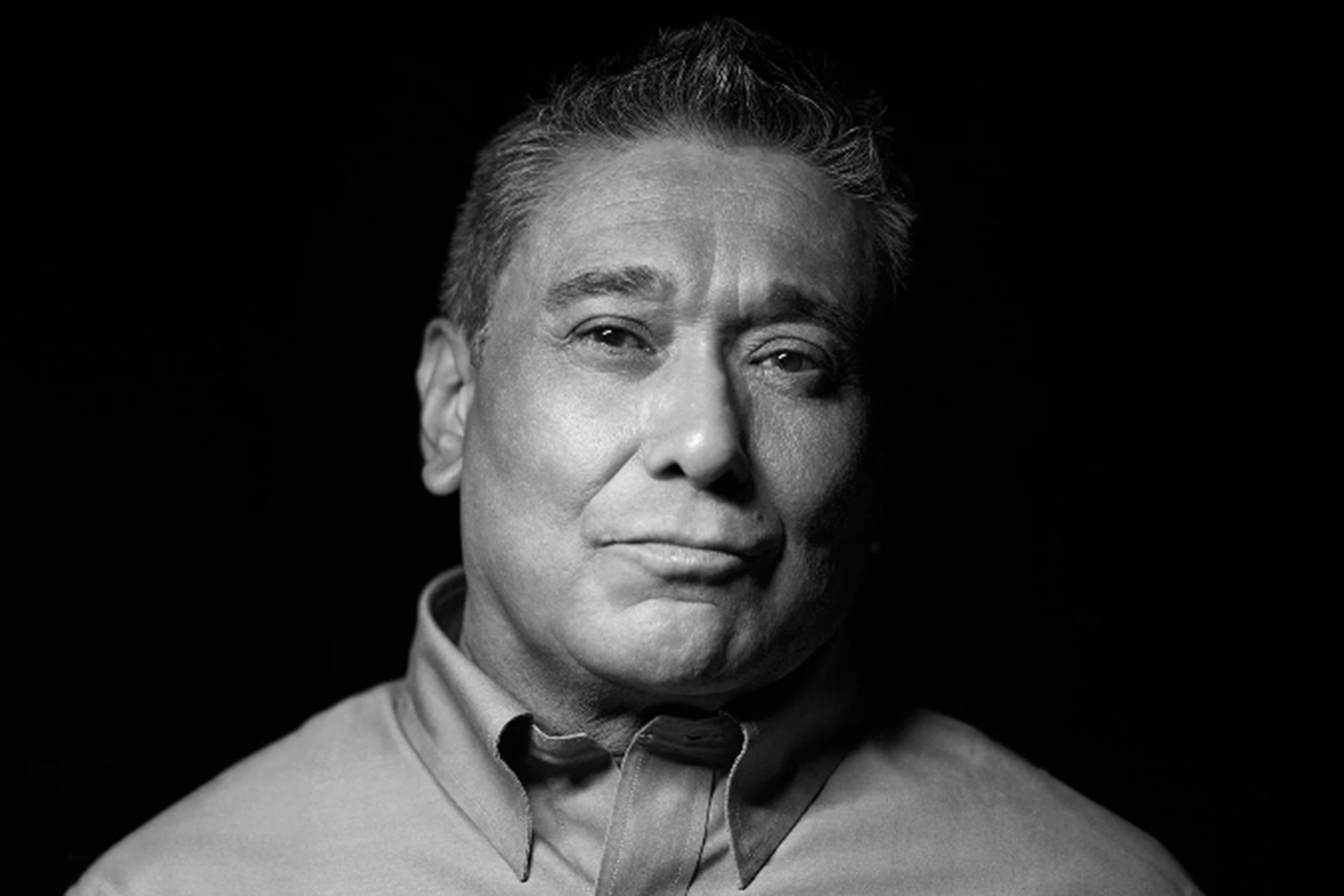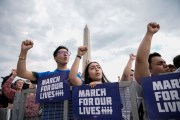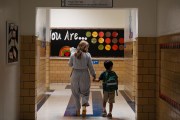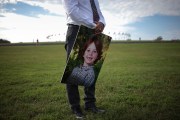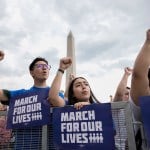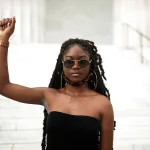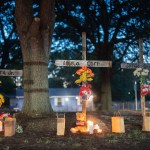“I’ve never seen anything like this.”
That’s the response director Jeff Vespa says he most often hears about his new short film, “Columbine 2024: 25 Years of Trauma,” which premiered April 4.
It might seem hard to believe that there’s anything left for audiences to learn about the widely-covered 1999 school shooting that occurred 25 years ago this month at Columbine High School in Littleton, Colorado. But Vespa’s new 36-minute documentary — which has been shown in select theaters and is available to stream — takes a different approach to the tragedy by exploring its impact on the marriage of English teacher Kiki Leyba.
“It’s really powerful,” Vespa said. “People aren’t really asked to tell these stories. They don’t get an opportunity to have their voices heard in this kind of uninterrupted way. There’s no filter between them and the audience, which is why I really like this process and the way I present it.”
Leyba barely made it out of Columbine alive after ushering students to safety during the mass shooting that left 12 students and one teacher dead. He went on to develop post-traumatic stress disorder, which not only took a toll on his well-being but also on that of his wife, fellow educator Kallie Leyba, and their family. In “Columbine 2024,” they both take turns describing how the shooting’s aftermath affected them. Kallie Leyba taught at a different school but experienced what mental health professionals describe as “vicarious trauma” through her spouse.
“This shooting isn’t the important part of this film,” Vespa said. “This movie is more about people and their struggles. Once you get past the shooting, everyone has a very different story. ”
-
Read Next:
Before the shooting occurred, Leyba expected April 20, 1999, to be one of the best days of his life. He was working at Columbine on a provisional basis, but the principal, Frank DeAngelis, had asked to meet with him to extend a long-term job offer. For the first time in his life, Leyba was starting a career rather than a job, he said.
“That was huge for me because I dropped out of high school when I was 16,” recalled Leyba, who still teaches English at Columbine. “I got my GED when I was 30 and went to college, and now I was moving into a career. So it was huge for me.”
During his meeting with the principal, shots rang out, and the pair headed out into the halls to find out what was happening. Hearing the gunfire grow louder, they warned passing students to flee. Finally, Leyba opened the school doors to make his own exit. He would later learn that he’d narrowly avoided death, with the shooter firing at him but missing.
Years of recovery followed the shooting, and Kallie Leyba didn’t always have faith that her husband would heal from the tragic event. During some points of her marriage, her husband was so distraught that she had to manage the household and their children entirely by herself, causing her resentment of him to spike. She admitted in the documentary that she, at times, regretted not leaving him when it became clear that he would never be the man he was before the shooting.
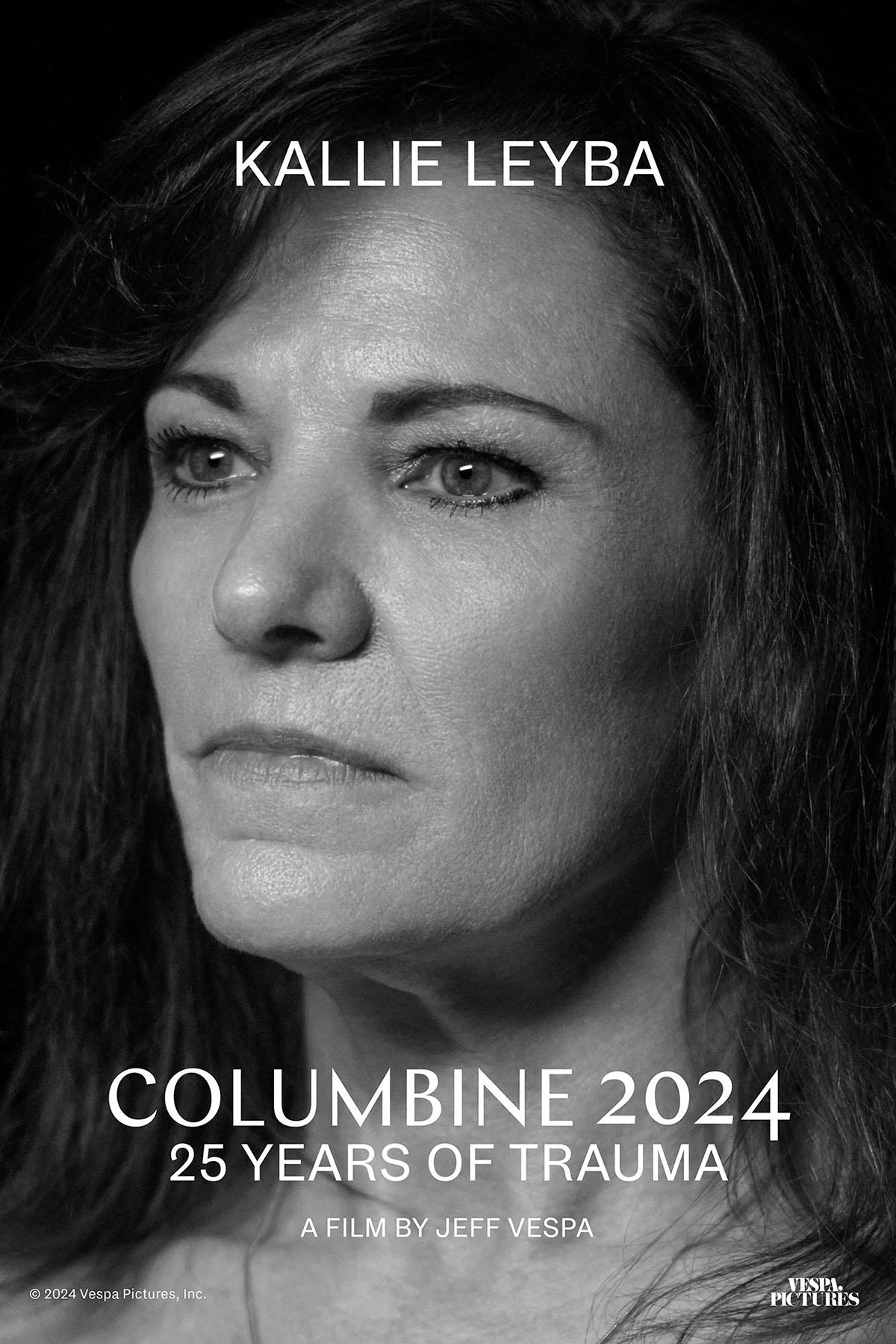
Owning up to such difficult feelings wasn’t hard, she told The 19th, because that was her reality. “I don’t think that it does anybody any good to present a picture that isn’t completely honest,” she said. “We all do better if we understand that everyone is struggling, and we’re not putting forward a perfect Facebook-curated picture of our lives.”
Distance from this period in her marriage allowed her to be “brutally honest,” she said, giving hope to others experiencing trauma-related difficulties in their relationships that change will come.
Vespa said that Kallie Leyba did not hold back, in part, because she’d never been asked to share her story before. She wasn’t a Columbine survivor, but her marriage to one gave her an important story to tell. “I liken it to pulling a cork out of the bottle and just everything coming out,” Vespa said.
Kallie Leyba believes her candidness serves a purpose: helping other people. “Some couples get divorced, but then you just make the assumption that the couples that didn’t get divorced were fine. I think that it’s important for people to recognize that their experience is unique and that we all struggle,” she said.
Some find it shocking that Kiki Leyba continued to work at Columbine High School after the shooting. When he’s out and about in clothing bearing the Columbine name, he gets curious stares. But he’s proud to teach at the school, from which his children graduated after the tragedy. Given Columbine’s history, Leyba said that students and staff have a strong bond.
-
Read Next:
“I think it is hard to convince people initially when they hear that, because every place says that, lots of schools say that, probably workplaces say that. But I’ll tell kids at some point you’re going to get it,” he said. “There’s going to be a moment when it hits you, where somebody goes above and beyond, helps you, supports you, or you do that in this unexpected way. We have a unique culture within our building and, of course, it is rooted in our experience.”
Having visited the high school, Vespa witnessed firsthand the pride Leyba takes in being a Columbine Rebel, the school’s mascot. Although the public perceives the school to be what Vespa calls “a place of horror,” he was struck by how much love Leyba has for it. As director of the film, he made a point to include that perspective, so viewers could see that the media narratives about the school don’t reflect what it’s actually like.
“The real story is these [educators] love it, and they’ve been going every day for 25 years,” Vespa said. “They didn’t stop going, they never stopped. I think most people have no clue of that. I love people being told the truth of things that they really think they know, and they absolutely don’t know it at all.”
Although Leyba remained devoted to Columbine, he still had to work through his trauma. A 2012 shooting at another school, Sandy Hook Elementary in Newtown, Connecticut, set him on the path to recovery. Initially, that shooting appeared to make him worse. “I would just be sitting there at dinner, and tears would just run down my face,” he said. “It was just so visceral, and it was just awful.” Then, Leyba and other survivors of the Columbine shooting had the opportunity to travel to Connecticut to offer support to survivors and their families. The trip renewed his sense of purpose.
He found it surprising that when the Sandy Hook survivors had questions — ranging from “When will things get easier?” to “When will things feel normal again?” — he and his Columbine colleagues could answer them based on their experiences.
“That was one of those times when that horrible day I had is useful for somebody now,” Leyba said. “It can help them. They can learn from our experience and from our mistakes or the things we did well. So that was really powerful.”
More than 400 school shootings have taken place since Columbine, and the Leybas don’t want to see the next survivor take more than a decade to recover from it. Kallie Leyba, executive director of the Colorado branch of the American Federation of Teachers (AFT) union, said that school districts need to invest in support systems for teachers in the event of a mass shooting.
“In 2018, our local Douglas County AFT union brought forth a resolution to the national convention asking that all locals across the nation encourage their school districts to set up a plan before a shooting happens that requires mandatory mental health treatment, or at least a mental health screening, before teachers go back into the classroom,” she said.
First responders such as police officers must be cleared fit for duty before they can return to work after experiencing a shooting, she said, so why shouldn’t teachers?
Despite the union’s efforts, school districts haven’t prioritized putting plans into place for teachers should a school shooting occur, she said. The expenses involved are largely to blame, but failing to invest in the mental health of teachers ultimately costs districts more, she said. The AFT union in Douglas County, Colorado, encouraged the school district to develop a plan, “and they just said it wasn’t a priority at that time,” she said. “Then we experienced another school shooting in our district.”
-
Read Next:
To raise awareness about how mass shootings affect teachers, Vespa aims to partner with gun advocacy groups to screen his documentary, which has already been shown to survivors of school shootings. The film, Vespa said, elicits deeply emotional responses not only from survivors of gun violence but also other traumas. “I see so much of me in this,” Vespa said they’ve told him.
In this way, the film differs from Vespa’s 2020 documentary, “Voices of Parkland,” about the 2018 shooting at Marjory Stoneman Douglas High School in Parkland, Florida, which he describes as an advocacy film focused on getting people to fight for legislative change. In contrast, the ability of “Columbine 2024” to help viewers doesn’t depend on the passage of a bill, Vespa said.
“This movie, I feel, when you see it, it helps people immediately,” he said. “It helps people by just watching it. We’re all very happy about that.”
When the lights come on after screenings, audiences aren’t discussing guns, but the impact gun violence had on the Leybas’ relationship, he said. While the film can be used to advocate against gun violence, “it’s actually deeper and more human” than a policy project.
“There’s many more nuanced conversations that are happening after this movie,” he said. “It’s not just about gun laws, and I love that and I appreciate that.”
